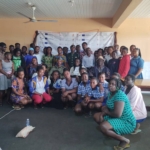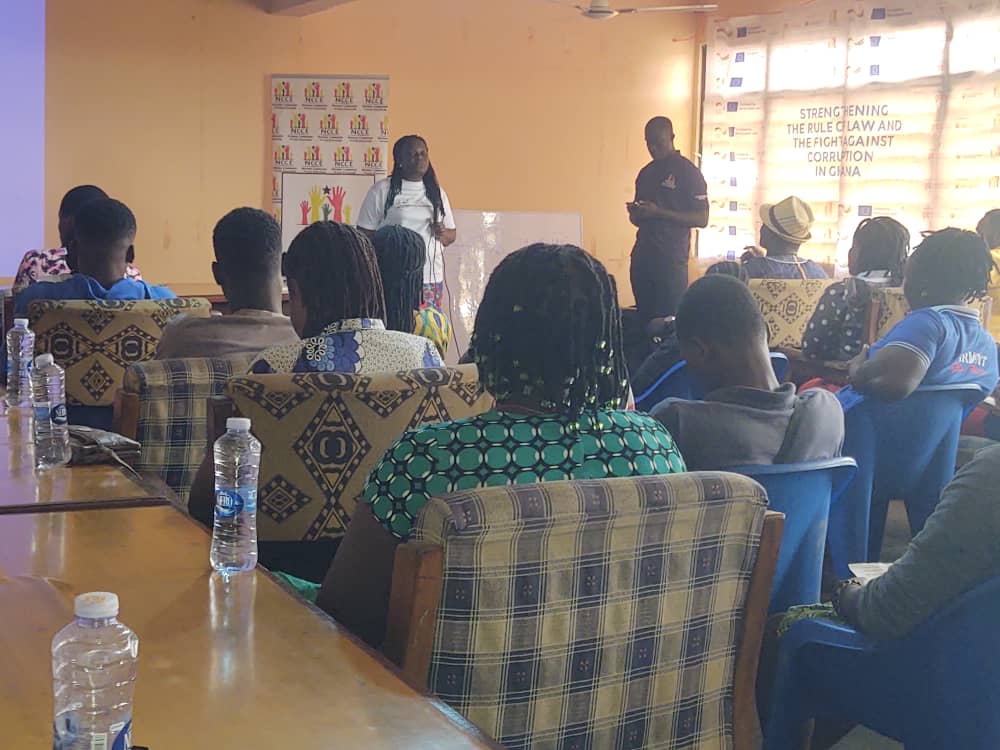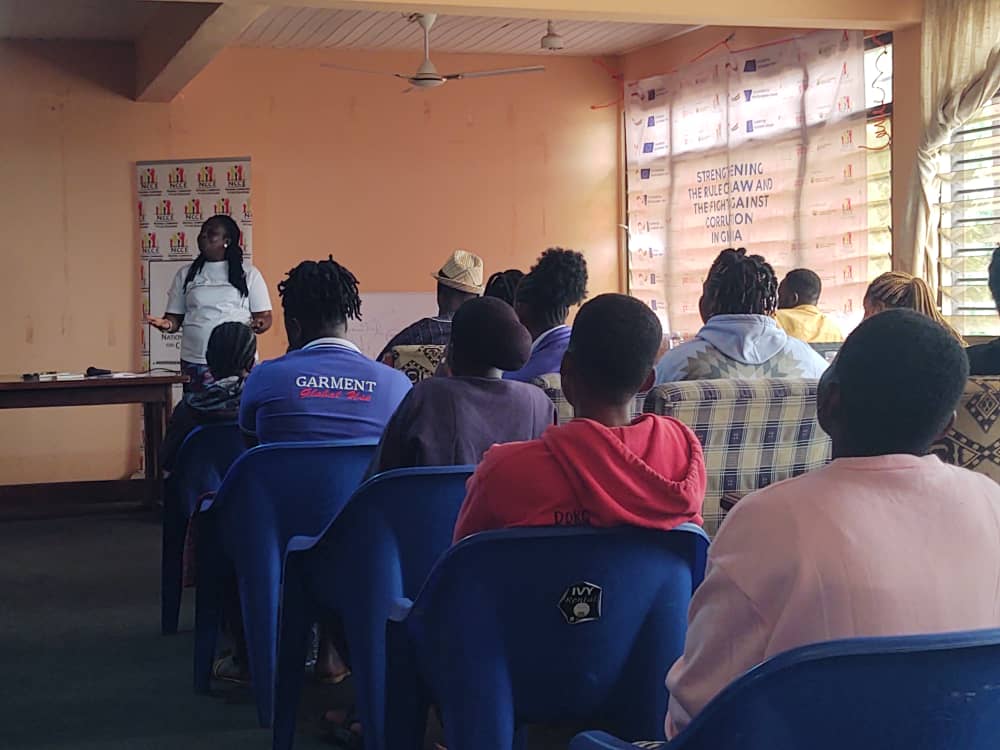
The National Commission for Civic Education (NCCE) Ketu South Municipal Office has brought together young people from across Denu in a landmark town hall meeting aimed at strengthening the rule of law and deepening the fight against corruption in Ghana.
Youth Take a Stand
The event drew a diverse audience, including artisans, market women, out-of-school youth, and persons with disabilities. Far from being a routine civic education session, the gathering became a rallying point for a generation eager to take ownership of Ghana’s governance and integrity.

Knowledge as a Weapon
Municipal Director of NCCE Denu, Mama Hodzige II, delivered an engaging presentation that broke down complex legal concepts into practical tools participants could use to challenge corruption in their communities. She outlined the corrosive effects of bribery, extortion, embezzlement, fraud, nepotism, and conflict of interest, and called on participants to be vigilant guardians of accountability.

Candid Conversations
A lively plenary session explored whether elements of Ghanaian culture fuel corruption. Participants debated passionately, rejecting the notion that unethical behavior should be excused as “the way things are done.” The exchange reflected a shift in mindset among young people determined to rewrite the narrative.
Legal Tools for Accountability
DSI Justice Kudzo Noameshi of the Ghana Immigration Service highlighted the role of critical legislation in fighting corruption, including the Whistleblower Act, Special Prosecutor Act, Right to Information Act, and Public Order Act. He emphasized their value as shields and weapons for citizens demanding transparency and accountability.
Partnerships for Change
The program’s impact was strengthened by the involvement of the Legal Aid Commission and the Foundation for Migrant Affairs Ghana. Together, these institutions reinforced the call for community-level collaboration in advancing anti-corruption efforts.
Charting the Road Ahead
Supported by GIZ and the European Union, the meeting went beyond education—it ignited momentum for a youth-led anti-corruption movement. Participants left not just informed but empowered, carrying with them knowledge, confidence, and a renewed sense of duty to drive change in their communities.
The message was unmistakable: Ghana’s youth are not waiting for change—they are leading it.